My adventure back into Google's ecosystem started in late 2016 with the purchase of a Google Home. I happened to be in New York around the time the device came to market, and saw one at Best Buy, so figured I'd give the well-hyped smart speaker a whirl.
After getting a Google Home, and slowly investing more into the Google world of services, I ultimately ended up switching to the company's flagship phone, Pixel 2 XL when it was released last October as well.
What I've discovered since the day I bought that first Google Home, is that Google is eating Apple's ecosystem for lunch, piece by piece.
Many analysts, pundits and bloggers have been quick to discount the smart speaker segment as a fad, but it's much more than that: it's a peek at the future, which Apple is not a part of.
The trojan horse
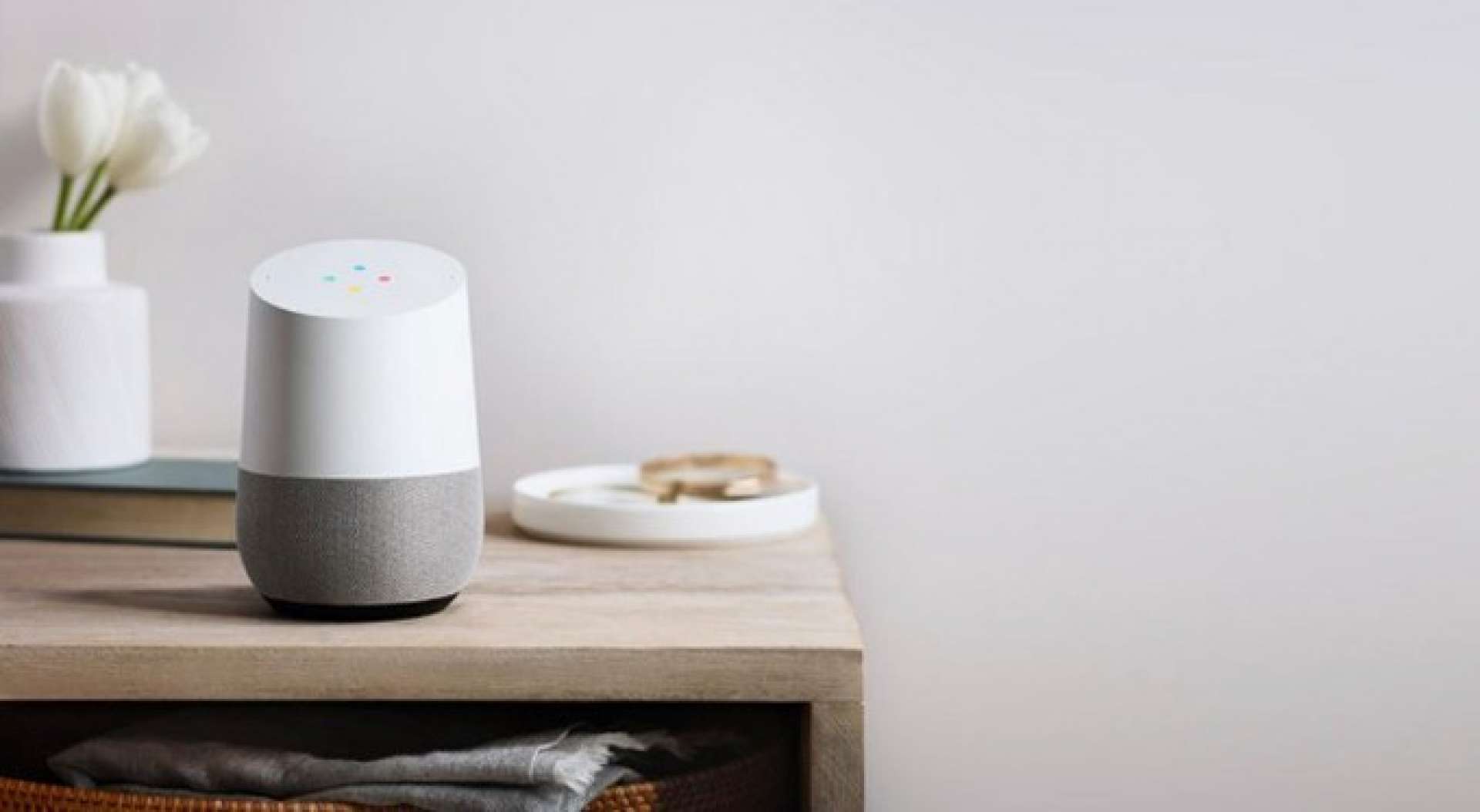
I was immensely skeptical of Google Home when it was trotted out onto the stage in 2016. First, it looked way too much like an air freshener, and second, what use case is there for talking out loud to a speaker, when my phone can already do all of this?
That first reaction has been absolutely proven wrong, and I now believe Google Home to be the key to unlocking the coherency, and a trojan horse into people's lives, that the company has been pursuing all of these years with its services.
We use Google Home every day at home, and my partner, Femke, has gone from skeptic to avid user as well. Over the first year, Google fleshed out the Home play rapidly, making it a compelling way to integrate your entire home. At first, it was mostly used for egg timers and making jokes. Later, it became the primary way we interact with both our home and our online lives as it improved.
Google Home's gateway drug is a peek at a 'post-screen' era, in which tapping, scrolling and sliding is not necessary as often. At home, my phone generally lives on the kitchen counter and stays there — I can just use my voice to ask if there are new messages, set reminders or listen to new music.
I like this, primarly because it reduces the rabbit hole that is Instagram, Reddit and other such apps that suck me in every time I check my phone. Home is a way to continue interacting with my digital life, and other devices, without needing to have something in my hand — and the voice recognition has reached a point where it's beyond impressive.
Having recently come from Siri, I grew accustomed to... never using Apple's voice assistant. It's pretty good at understanding you, but not reliable, and doesn't do much in the way of useful activities. Google Assistant, however, is incredibly responsive and has improved drastically with time: it now rarely misunderstands me, which creates this illusion of magic.
Once you get any sort of peripheral Internet of Things device, this becomes akin to magic. I had a Philips Hue set lying around for a few years that got used rarely, but with Google Home it's become a part of everyday life.
I say 'OK Google, goodbye' when I'm leaving and it turns off all the lights, as well as the TV. Upon return, it's programmed to turn on a handful of lights automatically when it detects proximity. This alone doesn't sound earth shattering, but it is surprisingly compelling — instead of wandering around the house flicking light switches, everything's just turned off in one go.
Google's services don't suck
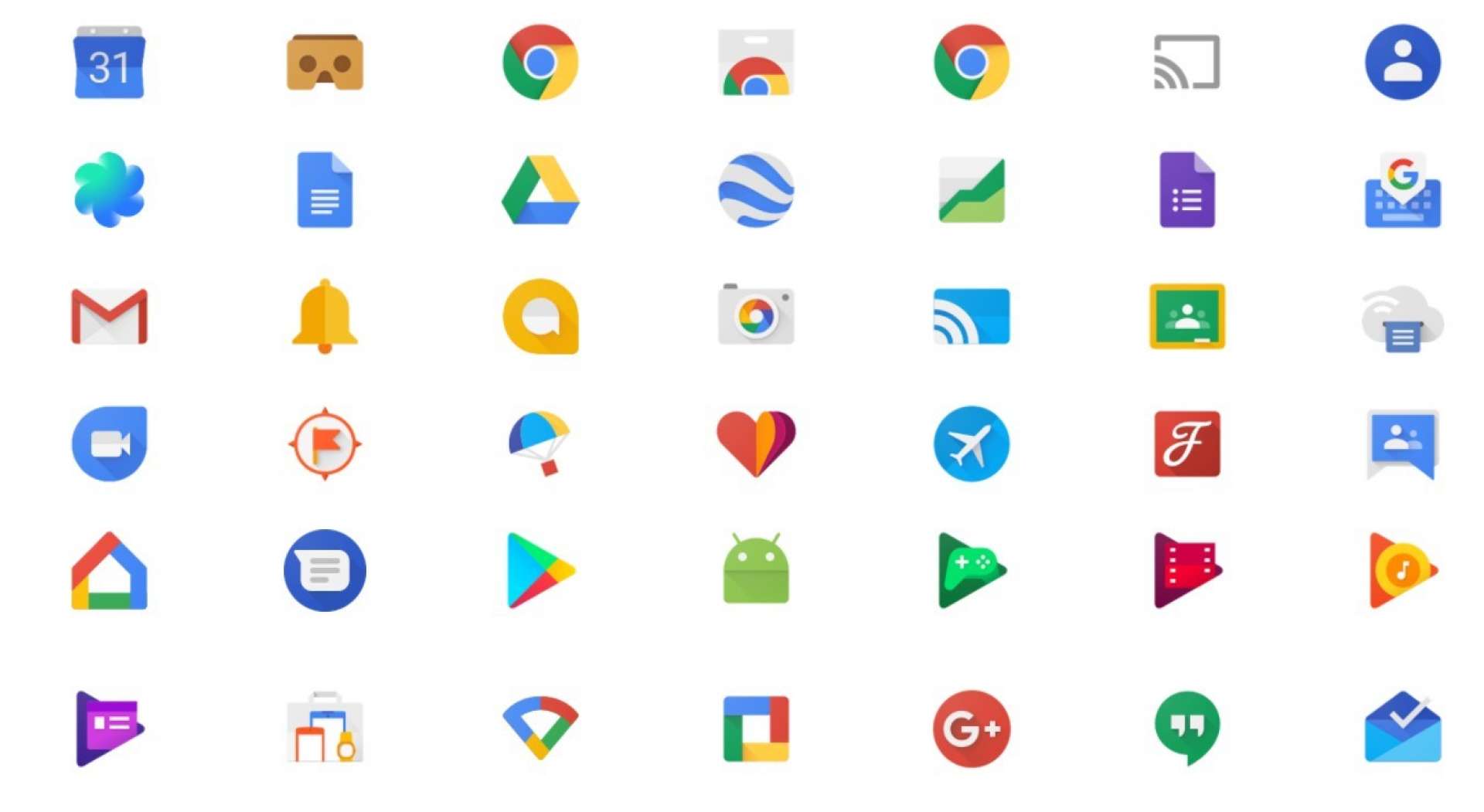
As we played around with the Google Home it became clear that because our data actually lives in Google services primarily, the company is able to produce inherently smarter devices.
Here's an example: one morning I woke up to a small pulsing light on the Home. Wondering what it was (and being unsure how to figure out what it meant) I asked OK Google, What's up? and it informed me the flight I was due to catch to San Francisco that day was delayed by two hours. Uh, OK, mind freaking blown.
The next step in my conversion came when I grew frustrated by Apple's terrible iCloud pricing, and how seemingly great Google Photos appeared to be. I dipped my toes in with the free 'unlimited' low resolution backup, and was somewhat taken aback by how great the search is, and how well the app surfaced photos to look at again.
There's something magic about wondering what that place you had beer was five years ago, slamming in the word 'beer' and having it return every photo you've taken of beer ever. While Apple's Photos app does this, the machine learning underneath is not nearly as good, and is limited to a bunch of keywords pre-approved by the Apple team.
Another huge advantage here, that gets you to use it more actively, is that Google Photos has a fantastic web version — I use this all the time. Visiting the web version lets you edit, browse back anywhere in history, or do whatever else you can in the mobile version, and acts as a great way to jump in and just grab a photo from your library in a few seconds.
Apple's photo ecosystem works fully if you have a Mac, but most amusingly, must reanalyze all of your photos repeatedly as it doesn't synchronize the machine learning state at all.
Even if you're OK with that, it's impossible to maintain a photo library of a reasonable size with the Mac app because it requires the library to live in a single, localized place. My library now exceeds the size of almost all MacBook hard-drives, rendering it useless.
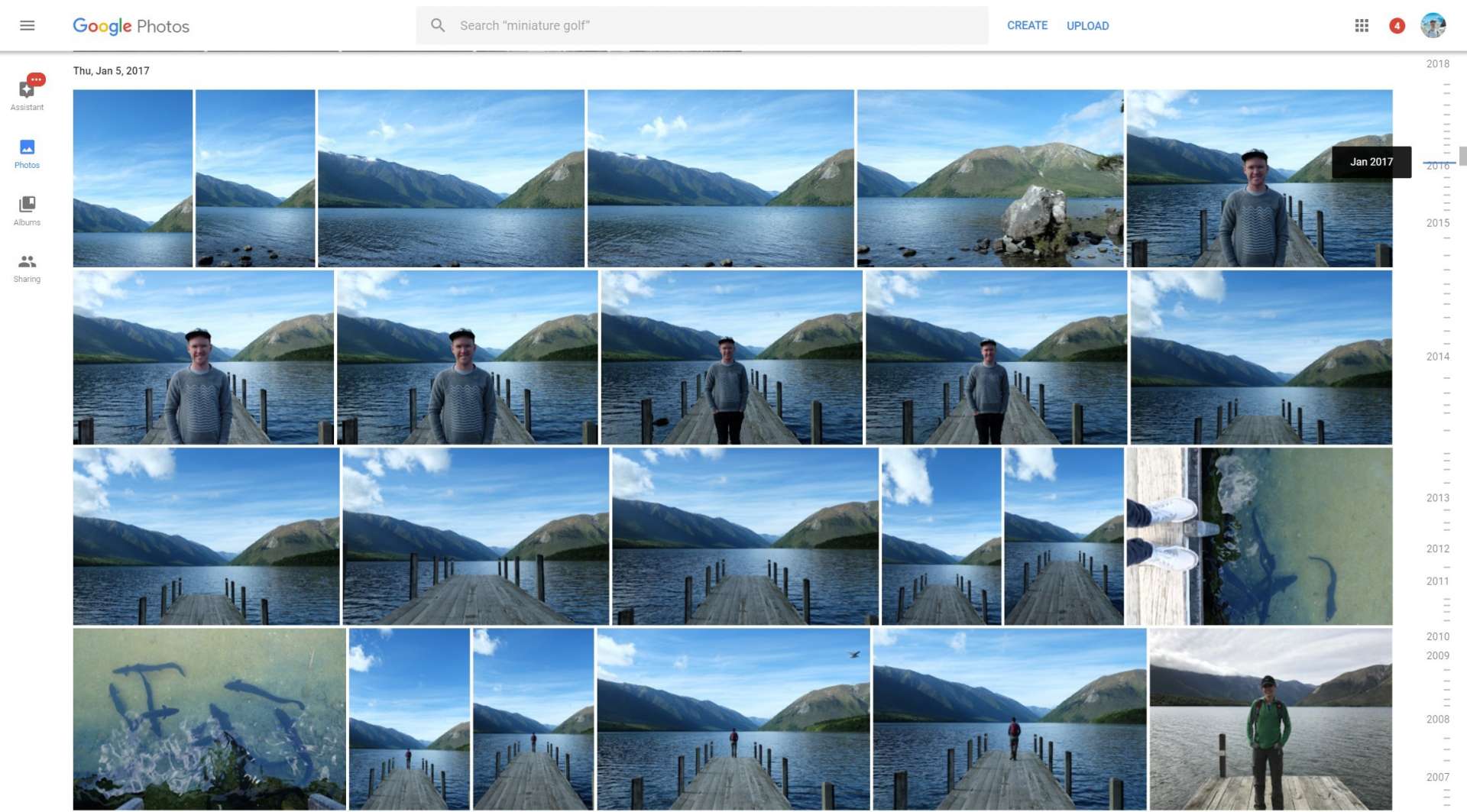
So, I went all in with Google Photos. For a generous $10 per month, I get 1 TB of storage, which felt cheaper than doing on iCloud because that storage is shared across other cloud apps I actually use, including Gmail, Drive and others.
I installed the small Google Photos uploader on our Mac Mini and slammed my entire Lightroom library in as well, making it all the more magic. Now, I have every photo I've ever taken right inside my pocket... and it doesn't use up device storage needlessly. Yeah, it just works.
The same goes for music, which has potential to be both confusing, and frustrating in a shared home. At first, Google Home didn't understand the difference between two people, but now, it'll recognize if it's me or Femke, and use the correct linked Spotify. Yeah, it just works.
This, of course, will vary by how actively you use Google services, but I believe the majority of people use them more than they might realize. With all of this in mind, I came to a realization: I didn't use any of Apple's default shit anymore. Sometimes I might ask Siri to play a song, and she'd dutifully inform me that I didn't have an Apple Music subscription. 🙄
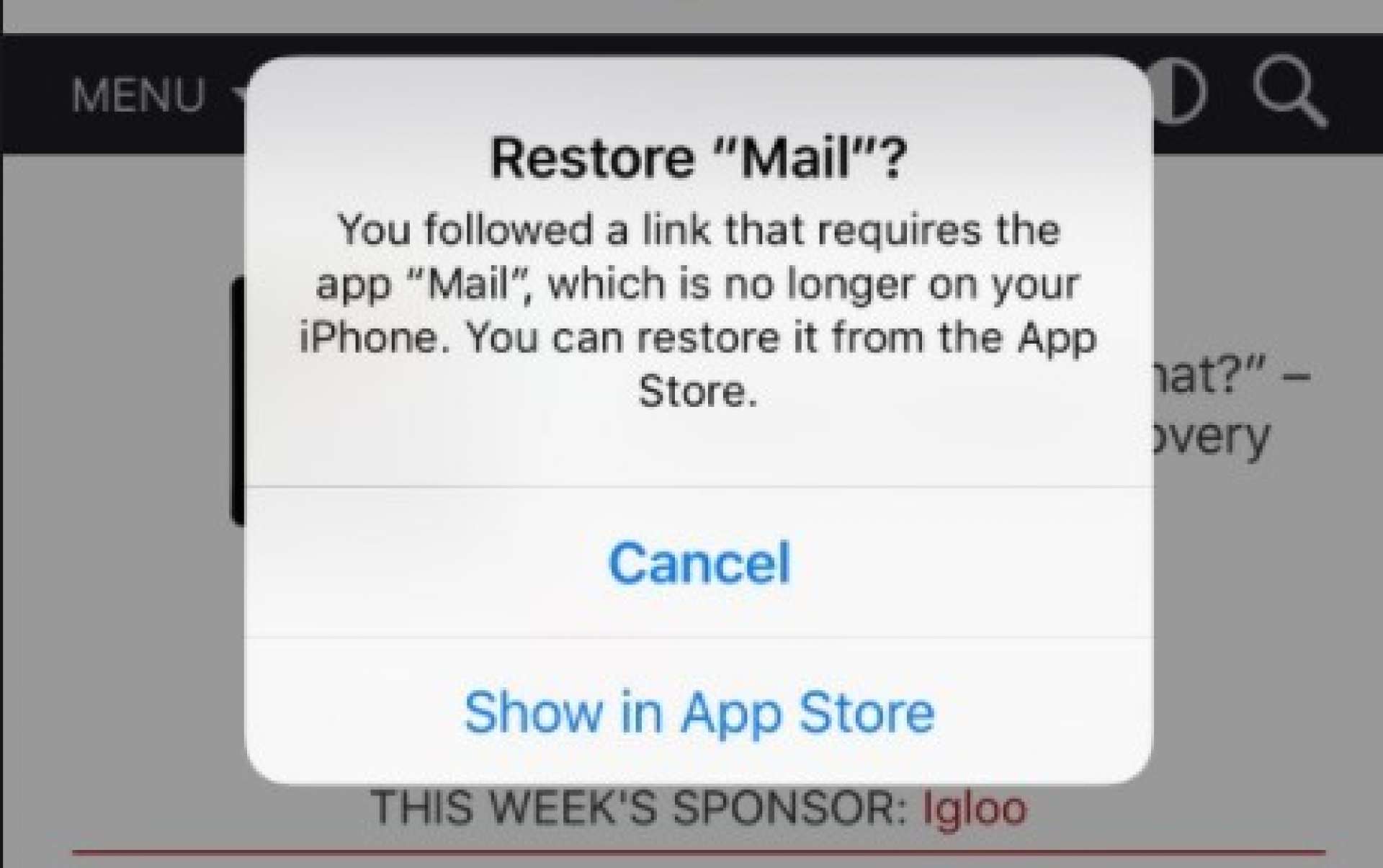
The Mail app, which barely functions with Gmail, had long been deleted in favor of Inbox, Photos was now abandoned for Google Photos and so on... so maybe I should be on a Pixel? It seemed fairly compelling, but given how early in the hardware story for Google it is, it took a while to come around to the idea.
I... frankly didn't trust the hardware, and put great amounts of trust in Apple's simply because it has stores, and a fantastic warranty policy, but against my better judgement, the camera tempted me away.
Hello, Pixel
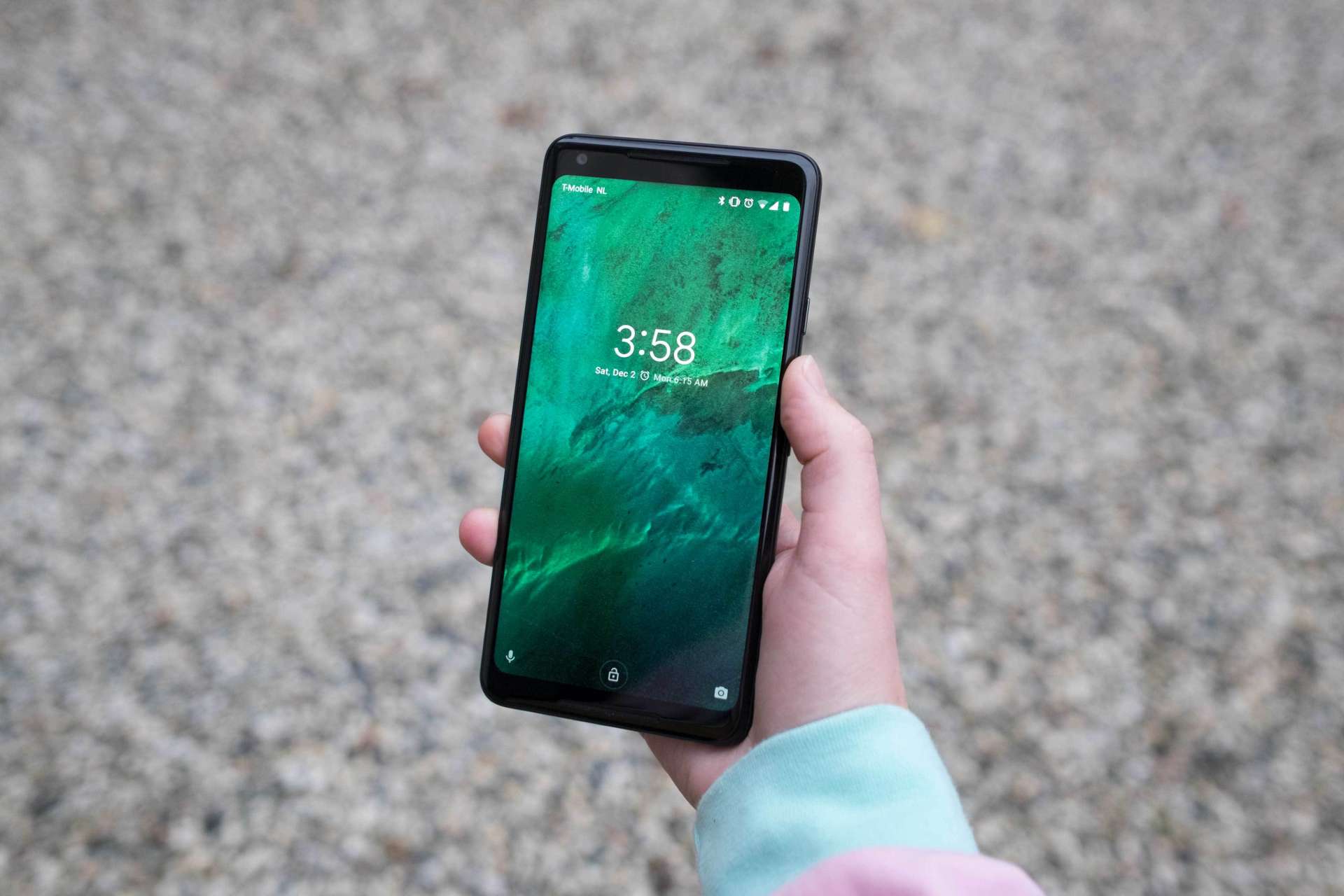
Well, I made the jump to the Pixel 2 XL in October as a result of tipping my toes in Google's ecosystem and it gets even better from there. I wrote an in-depth Pixel 2 XL review here, which you can read at length, but what's been most impressive so far has been how much more seamless things are than I'd given Google credit.
First, Google Assistant alongside Google Home is wild. When you own a Pixel, saying OK Google at home activates your speakers and your phone, figuring out which one is closest and responding on the correct device. If both are in the same room, it'll defer to the speaker, but if you're too far for the speaker, it'll instantly respond on the phone.
This gets even cooler if you have a few Google Home devices thrown around. The Pixel 2 XL comes with a free Google Mini, so we put one in the living room, as well as the kitchen, and you're able to walk around while replying — it'll figure out the difference. It's a bit weird sometimes, but it's impressive nonetheless.
Naturally, I now use the Google reminders app, which integrates with Inbox and Home. If I'm in the house and a reminder is triggered, that little light glows and it'll prompt you on your phone to check in. If I'm away, it'll pop up on my phone, but not at home and so on.
These little touches, and that they're able to actually connect the dots because my data lives in Google's services, makes the experience that much more coherent. At home, and wearing your smartwatch? OK, we won't ask you for a pin-code more than once a day. Need to find your phone in the house? Just ask aloud, and we'll make it ring.
I was also pleasantly surprised to find out the same experience works across Android TV, and just as well. We've had one for a while, but never thought much of it — though you'd be surprised how hard-pressed you'll be in Europe to find a TV that isn't running Android at this point. OK Google, put Stranger Things on the TV wakes up the TV, opens the app and starts streaming without doing anything.
The cherry on the top of this ecosystem is that you're able to use the services you like and prefer: Todoist for shopping lists? No problem. Spotify for music? Great! We'll forget Google Music exists entirely, unless you ask for it. This alone is a goddamn godsend after years of Apple's insistence it knows best, and you must not use anything else.
Apple's direction, for better or for worse, is to lock you into a single track and make it agonizing to use anything but the official services. Sure, Inbox and Outlook are fantastic apps on iOS, but enjoy seeing the Mail app pop-up every goddamn time you click an email link, and Apple Music will be shoved down your throat at every turn. Spotify who?
There is an area that Google, unfortunately, falls down miserably here: messaging. I was never a huge iMessage user, mostly preferring Facebook Messenger, but lord almighty Google's messaging story is worse than ever. I happily embraced Allo, as did a bunch of friends who switched as well, but it inexplicably remains absent from Home, and only sort of works on a computer. It also lives in an entirely separate world from SMS, and has no tablet app.
Duo, Google's FaceTime competitor is fantastic — I've not seen a video calling app that works across literally every shitty connection reliably like this, and still connects rapidly — but has an adoption problem. Also, it somehow doesn't work on computers at all while another video calling app, Google Meet, somehow does. 🤷♀️
What's nice, however, is I at least have a choice. I'll video call on Messenger if I need to, and I can send texts via Telegram instead. If you use Carplay on a daily basis, you're forced to use Apple Maps (I'll tell you about how it misdirected us to Yosemite another time) — while Android Auto lets you do whatever you like, and arguably is much more functional, while offering proper freedom of choice to the end user.
Don't even get me started on how great it is to use Chrome as a default browser.
A slippery slope
Google is selling millions of Home devices right now, driven primarily by dirt-cheap Home Mini speakers (which are, by the way, fantastic little devices). How many other people are getting a taste of something different right now? I'd hazard a guess that there are a good amount of people out there impressed by what Google is up to.
All of this is to say one thing: Google is years ahead of Apple on the voice front, and Home is a great gateway drug for understanding just how great Google's ecosystem has now become. HomePod is yet to hit the market, but reports suggest it'll be a great way to listen to music... from Apple Music.
Many will likely argue that Apple's focused, narrow vision of how services and hardware interact are the beauty of the Apple ecosystem, and I totally agree! If you are willing to live within Apple's lines, using iCloud Mail, Photos, Calendar and whatever else, it's actually a decent experience, but start moving beyond it and you'll quickly find the rest of the world is moving on.
We're well past the days where arguing about Android vs iOS is even relevant. Now, you can use whatever phone suits your flow better and it's easier than ever to move between both devices, but there's the problem: Apple's stuff is tied to one of those, and everything else works everywhere.
As soon as you dip your toes out of that comfy garden, it quickly becomes apparent you're either all-in on Apple-land or basically blocked out entirely. I'm tired of that, and I suspect others are too. This is even more apparent as Google has quickly assembled a rich, compelling ecosystem around voice and Apple has... Siri.
I won't say that Apple will fail, and I'm certain that HomePod will be a hit even if it's mediocre, after all, it's a marketing company — but perhaps the closed-off, pretend-like-the-web-doesn't-exist game will eventually be what drives people away. Until then, I believe many people will, at Apple's loss, choose a competing smart speaker as their assistant of choice.
From there, it's a slippery slope: the new platform battle has already begun.
Side note: A funny thing happens when you become accustomed to barking commands out loud at home. Eventually you'll find yourself in a very public place, like the office, trying to say 'OK Google' aloud to skip a song. Good luck.
👋 Hey — I'm building something you might like. re:Charged is a morning briefing with everything that matters in tech, sans ads and clickbait. Use the code medium-party to get 25% off the first three months, by signing up here.

